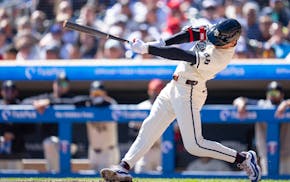The regional Chicago office of the National Labor Relations Board ruled last week that Northwestern football players have the right to form a union. It's a pivotal first step in what could be a landmark shift in college athletics. But what does it mean right now? For that, the Star Tribune's Michael Rand interviewed Mark Mathison from the local law firm Gray Plant Mooty. He's an expert on both union law and higher education law.
Q Next steps-wise, where are we?
A Although Northwestern has indicated it will seek review of the full board in Washington, that will not have the effect of putting a hold on the election. … That union election should go forward shortly. And the football players will vote. Those ballots are secret, and they're sealed. They'll be impounded by the board until the review is complete, and that could take a year. … The whole process could take a couple of years.
Q Practically speaking, let's say things continue to go in the favor of the players. What would the practical application of that look like in the college athletic setting and what they'd be able to get out of this?
A That's difficult. One indicator is what the union has said it wants to bargain for, and the number one thing I've seen is lifetime coverage of medical expenses resulting from football-related injuries or conditions. … But all that's just a wish list. It's all subject to bargaining.
Q This is isolated right now at Northwestern, a private school. But let's say other athletes get interested in it. How would this be different or the same at a school like the U of M, which is a public school that also plays Division I sports.
A There is one key difference: The law that this decision is made under doesn't apply to the U of M because it's a public institution. Now, there is a Minnesota labor law that is very similar to the federal labor law, and that does apply to a public institution. … I'd be surprised if at this point, the [union] isn't out there talking to a bunch of other schools. Why would they stop here? This is one teeny victory on the road to winning the war. And the war is going to be long.
Q Would any Division III private schools potentially be impacted even though they don't give out athletic scholarships?
A In this [Northwestern] decision, the walk-ons are not included. [A scholarship] is the compensation that's elemental to the analysis of whether they're employees or not.
Q Could we get into scenarios where one athlete at the same school as another is compensated more because of the revenue the sport brings in?
A Well, in this decision they spent a lot of time talking about compensation and the amount of revenue the school realizes, brought in large part by the services of these players. All of that is potentially variable when you start looking at different sports. Maybe basketball is similar. Maybe baseball is not similar at all.
Q Bottom line, it sounds to me like it was a massive decision but that for every question answered we have about 10 more unanswered. Does that sound about right?
A For sure. This is going to go on and on. And the NCAA clearly has a dog in the fight. They're going to be playing either an active or behind-the-scenes role.

Live: Minnesota United at Charlotte FC. Follow on Gameview.
Jameson Taillon comes off the injured list and helps the Cubs beat the Marlins 8-3
T-wolves take NBA's best defense into series vs. Suns, but can it stop Durant-Booker-Beal trio?

